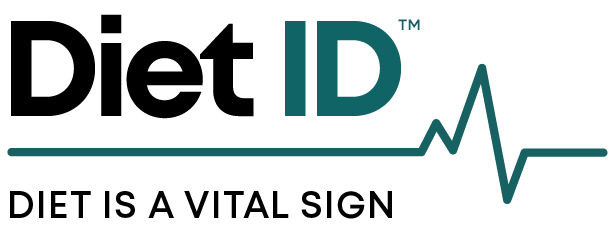Download the PDF of this case study
One of the most rewarding aspects of providing our digital health solutions to healthcare providers is getting to witness positive, encouraging results in their populations. One such example is how Spectrum Health, one of Diet ID’s esteemed healthcare partners, uses Diet ID in their lifestyle medicine practice.
Spectrum Health is a major health system in Western Michigan with 31,000 staff members and more than one million members. Their lifestyle medicine practitioners utilize CHIP (The Complete Health Improvement Program) as one of the many interventions offered within their practice to help their patients achieve and maintain optimal health using targeted lifestyle interventions. Part of their planning when considering tools to implement, not only within the Lifestyle Medicine Practice, but also with the implementation of the CHIP program, involved selecting a simple, digital method to assess their patients’ diet before, during, and after program interventions.
They chose the Diet ID assessment for two main purposes:
To gather information about their population’s current eating patterns in order to understand their starting place, which is key to strategizing personalized treatment plans
To collect participant data in order to track progress over time, analyze outcomes, and evaluate program success.
Over an 8-week period, 18 participants used the Diet ID assessment tool and actively participated in the CHIP program.
We are so impressed and inspired by their results!
Comparisons of pre to post-intervention reveal dramatic changes in diet quality. On average:
Diet Quality score (which ranges from 0 to 100) increased 35 points
Added sugar was roughly two thirds lower
Saturated fat content was slashed in half
Omega 3s were more than twice as high
Sodium was more than a third lower
Fiber was nearly three times higher
While it’s great that people’s diets got better, what does this mean for their actual health and disease risk?
Twenty-eight percent of participants needed to either decrease or eliminate their medications — over just 8 weeks! BMI changed as well -- it went down an average of 1.7 points (reflecting an average drop of 11.2 pounds). The data revealed a strong correlation between improvement in diet quality and reduction of BMI. Physical activity, which is part of the assessment, was also analyzed and the data showed that the influence of diet on BMI was six times greater than the effect of physical activity.
Finally, over this 8 week period, participants’ average hemoglobin A1C value decreased by 0.41 points, fasting glucose went down by 11.1 points, diastolic blood pressure went down 2.6 points, triglycerides fell by 10.8 points, total cholesterol decreased 31.8 points, and average LDL cholesterol dropped by a whopping 25.3 points.
Because the Diet ID assessment is easy and quick (it takes just a minute or two), the practitioners saw a very high completion rate - 93%! This is critical because completion rates for long and/or tedious assessment methods is a known problem in nutrition research; this imposes significant limitations on data accuracy and program success. In addition, participants rated the accuracy of their assessment to be, on average, 93%.
One of the most significant benefits of Diet ID is that such analyses can be conducted during the intervention period in order to assess progress along the way. Using traditional assessment methods, providers need to wait until the end of the intervention to understand meaningful data trends.
Our Spectrum partner told us, “To be able to get that rapid assessment has been so helpful as we onboard patients into a program like CHIP and as we follow patients longitudinally.”
For more information on what the Spectrum Health Lifestyle Medicine team is doing visit their website Lifestyle Medicine | Spectrum Health. Or visit them on Facebook by searching “Spectrum Health Lifestyle Medicine.”
Want to learn more about how Diet ID can improve your workflow? Set up a demo with us!



